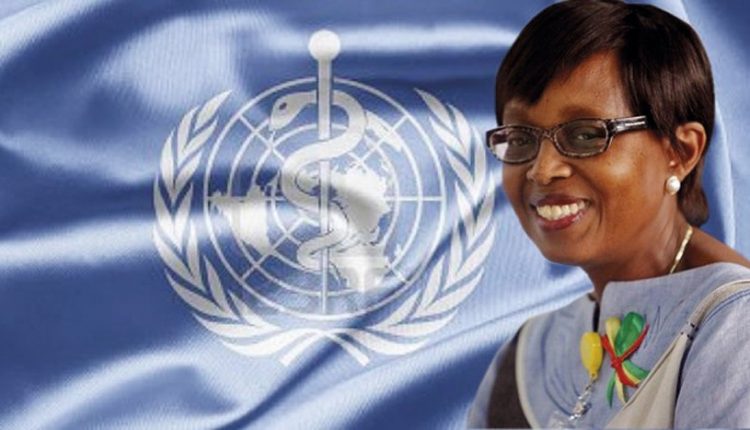Reasons Why WHO Wants Schools Reopened
According to the World Health Organization (WHO), children staying at home to protect them from being infected by COVID – 19 is doing them more harm than good. This is following a statement from WHO and Unicef on Friday.
WHO says that the effect of this extraordinarily long holiday is quite significant and it goes beyond schools or learning institutions to their homes.
“Some of the consequences of an extended closure of schools include stress, poor nutrition, exploitation, increased exposure to violence, childhood pregnancies, challenges in their mental development because of reduced interaction,” said WHO in a statement to the media.
Unicef also noted that in Eastern and Southern Africa, there has been an increase in violence in children as well as reduced nutrition rates due to more than 10 million children missing out on school meals.
“For girls more so those who are living in low-income households or those displaced, the risk of violence and malnutrition is even higher,” read the statement.
Economic losses due to the closure of schools is also of huge concern for economics.
The World Bank estimates that school closures in Sub-Saharan countries could lead to lifetime losses of $4,500 per child.
Parents have also been forced to stay in homes that cannot afford caregivers of nannies are limited from seeking outside work to boost the incomes of their families.
Staying at home to take care of their children will also reduce the parents’ earnings.
WHO is imploring African governments to facilitate the safe reopening of schools with proper measures in place to prevent learners from contracting COVID – 19.
“Schools have brought success to many Africans. They are also a safe haven who are in challenging circumstances to be able to develop and thrive in life,” said WHO Regional Director for Africa, Dr. Matshidiso Moeti.
“We must also not be blinded by the efforts we are making to contain COVID-19 and then end up losing a generation. Just as many nations are opening business safely, schools should also be reopened. However, a thorough risk analysis should be utilized in order to ensure the safety of our children, parents, and teachers with key measures put in place like physical distancing put in place,” added Dr. Moeti during a press briefing on the statement released by WHO.
A survey done recently by WHO in 39 countries in sub-Saharan Africa revealed that schools are fully open in just six countries.
Kenya has not opened schools yet with CS Magoha saying on Wednesday that only President Uhuru Kenyatta can decide when to reopen.
“Over 100,000 schools are still closed in the country but the final decision on reopening rests in the hands of President Uhuru Kenyatta. He is the one who decides whether he can take the risk,” said Prof Magoha during a trip to Siaya Technical Institute.
However, the CS said that schools across the country can only reopen once appropriate COVID – 19 prevention guidelines have been put in place.
Elsewhere in Africa, 12 countries are planning to start face-to-face learning in September, which is when the academic year starts in some countries. In 14 countries, schools are closed while in 19 others, schools are partially open for purposes of examinations.
The effects of the closure of schools because of emergencies have been talked about almost by every media outlet. For example, the rate of pregnancies among teenagers doubled in Sierra Leone, with many girls not able to continue with their education upon reopening of schools after extended closure of schools caused by the 2014 Ebola outbreak in West Africa.
Unicef Regional Director for Eastern and Southern Africa, Mohamed Malick Fall revealed that the closure of schools poses a big risk to the future prospects of self-advancement of the affected children.
“The impact of extending the closure of schools in the long term poses even greater harm to children, their future and communities,” said the Unicef Regional Director for Eastern and Southern Africa, Mohamed Malick.
“When we balance the harm happening to children locked out of schools, and if we also follow the evidence, we end up at the conclusion that children should be in classrooms,” he added.
Recommendations issued in the guidelines submitted by WHO, Unicef, and even the International Red Cross on the prevention and control of COVID – 19. The recommendations include discouraging unnecessary touching, wearing face masks, avoiding gatherings, providing handwashing facilities, the spacing of desks when possible, having a different schedule for the start and end of school days, and sick students and teachers to stay at home.
WHO and Unicef also recommended regular hand washing, decontamination, and cleaning of the environment, providing basic water, sanitation, waste management facilities, and even daily cleaning and disinfection of surfaces.
It has to be said that these measures could be difficult to implement in sub-Saharan Africa, where millions of kids attend schools that do not have basic water, hygiene, and sanitation services.
According to a WHO and Unicef report on the progress of sanitation, hygiene, and drinking water between 2009 and 2019, it is only one school in every four that provides the stated basic services. On estimate, 48% have basic sanitation services while 44% have drinking water.



Comments are closed.